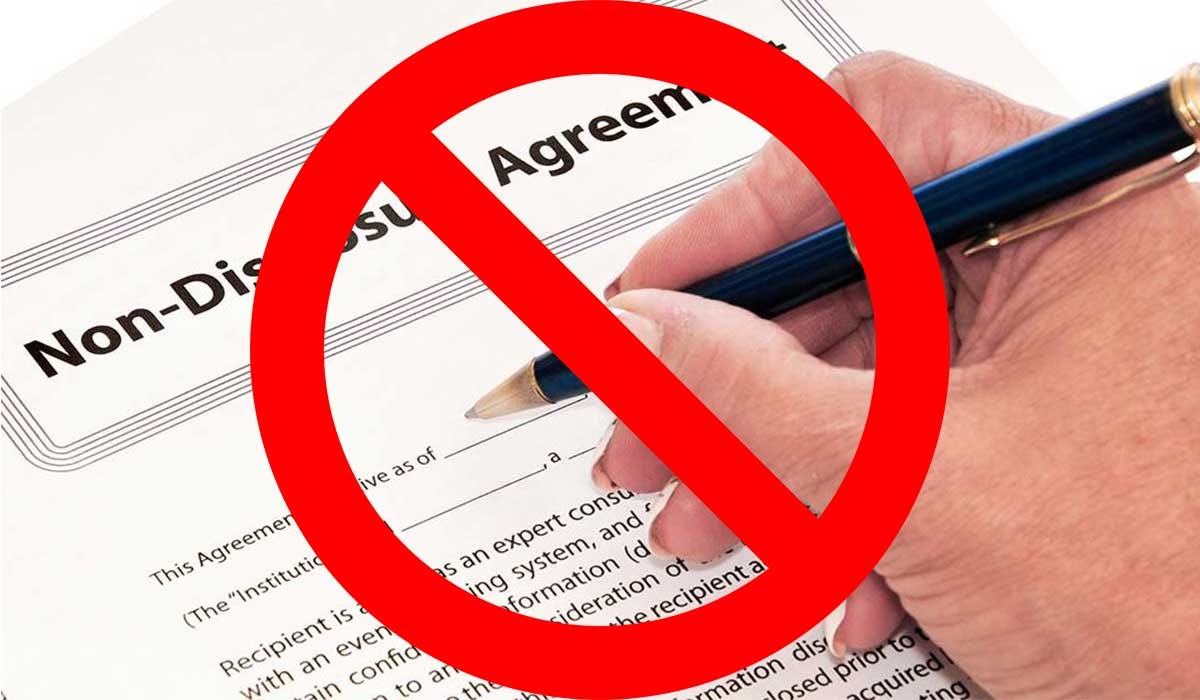Why Non-Disclosure Agreements (NDAs) are detrimental to the witness of the Christian church
PERSPECTIVE
The Baptist Report
Editor’s note: With the approaching annual meeting of the Southern Baptist Convention (SBC) June 11-12 in Indianapolis, Ind., The Baptist Report revisits notable events and current issues of the nation’s largest and most influential Protestant denomination. The use of Non-Disclosure Agreements (NDAs) in the SBC and its churches has increasingly drawn criticism in recent years, particularly in light of the denomination’s numerous sexual abuse scandals.
Non-Disclosure Agreements (NDAs) in the corporate world serve a practical purpose. They establish a confidential relationship, ensuring that sensitive information remains private. Businesses use them to protect trade secrets, product development, and competitive advantages.
However, the moral landscape changes dramatically when NDAs are wielded to shield leaders and organizations from accountability. Even more troubling is their use within churches and church-related organizations — where transparency, compassion, truth, and justice should prevail. The impact of NDAs can be profoundly negative and detrimental to the witness of the church.
By prioritizing the church's reputation over the safety and well-being of individuals, NDAs send a harmful message. When leaders or organizations use NDAs to cover up wrongdoing, they undermine trust and hinder accountability.
Churches are meant to be places of trust, compassion, and healing. NDAs create a veil of secrecy. Congregations are left in the dark, unable to address past issues or learn from mistakes. Secrets fester, damaging both individuals and the community.
When NDAs shield leaders from consequences, they can encourage harmful behavior. Leaders who should be held accountable continue to operate without scrutiny. This undermines the very essence of Christian leadership.
The Rise of NDAs in Church Culture
NDAs have crept into church culture as denominations and churches have grown larger, more sophisticated, and employed hundreds — and in some instances thousands — of employees. These entities function more like large businesses or corporations than traditional church organizations.
As these churches and denominational entities experienced reorganizations and staff downsizing for various reasons, NDAs began to be tied to individuals receiving a monetary severance as they exited employment.
Silencing Victims of Abuse
Scandal after scandal has rocked the church world, exposing the extensive use of NDAs. These agreements have effectively silenced victims of abuse, preventing them from revealing the shadow lives of pastors, ministry leaders, and organizations.
Imagine a megachurch where the pastor’s lavish spending, prosperity theology, and authoritarian leadership style raised eyebrows. Once they joined, employees felt an “instant spirit of fear.” Standing when the pastor entered the room became an unspoken rule. Such an environment perpetuates silence and stifles truth.
Fear of Legal Retribution
Many victims of abuse hesitate to speak out due to fear of legal consequences. NDAs, though helpful in certain circumstances, have been misused to conceal inappropriate actions and behavior of church leaders and even criminal behavior in some instances.
Unhealthy churches and denominational entities have weaponized legal agreements to suppress leaders and staff who were troubled by habitual sin, financial fraud, or cultic practices. The very institutions meant to offer solace and healing have become enforcers of silence.
Incentivizing Immoral Behavior
Therefore, NDAs may inadvertently incentivize immoral conduct. When individuals believe their misdeeds can be covered up by legally enforced silence, the line between accountability and secrecy blurs.
As mentioned, while legitimate uses of NDAs exist, their misuse — especially within churches and church-related entities — undermines the pursuit of truth, justice, and healing, incentivizing immoral behavior.
A Call for Transparency and Compassion
Churches and denominational entities should evaluate the moral and ethical implications of NDAs. Here are some steps they can take:
1. Reevaluate NDA Practices
- Churches and church-related entities should critically assess their use of NDAs. Are they protecting legitimate interests or perpetuating a culture of silence?
- Transparency should trump secrecy. Leaders must prioritize the well-being of victims and employees over organizational reputation.
2. Prioritize Healing and Accountability
- Rather than silencing victims and employees, churches and church-related entities should create safe spaces for survivors to share their experiences.
- Accountability mechanisms, independent investigations, and survivor support networks are essential.
3. Educate Leaders and Congregations
- Teach church leaders about the ethical implications of NDAs. Encourage open dialogue and empower congregations to ask tough questions.
- A commitment to justice and compassion should outweigh any desire to protect its image.
Thankfully, there is a growing movement within the church to reject NDAs. The "#NDAfree" movement invites Christian organizations and churches to pledge to be free from these agreements. By doing so, they commit to openness, transparency, and accountability.
Jesus consistently prioritized truth, compassion, and justice. He challenged secrecy and called for repentance. As the church, we must follow His example. Let us replace NDAs with a commitment to honesty, healing, and protection for all.
In the sacred space of worship, where grace and redemption intersect, NDAs should not muzzle the cries of the wounded — whether it be the loss of employment or the seriousness of sexual abuse or misconduct. Let us dismantle the walls of silence and embrace a path of healing, transparency, and love.
Do you have a story to tell about the use of NDAs in your church or Christian organization? The Baptist Report would love to share it with our readers. Please email us!




